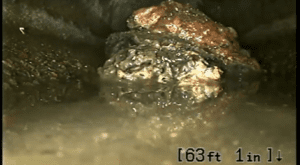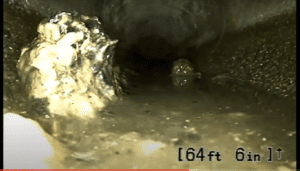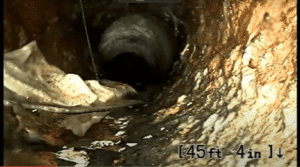
Regular maintenance helps prevent the accumulation of debris, grease, and other materials that can lead to blockages in the sewer line. Blockages can result in slow drainage, backups, and potential damage to the plumbing system. Clogs in the sewer line can cause wastewater to back up into your home. This can lead to unsanitary conditions, water damage, and costly cleanup efforts. Preventing backups is crucial for maintaining a healthy and safe living environment. Sewer backups can cause damage to your home’s structure, flooring, and belongings. Avoiding clogs helps protect your property from potential water damage and the associated expenses of repairs and restoration. Clogs can put additional stress on plumbing fixtures, such as toilets, sinks, and showers. Regular maintenance helps preserve the lifespan of these fixtures by reducing the likelihood of backups and overflows. Sewer backups can introduce harmful bacteria and pathogens into your home. Exposure to contaminated water poses health risks to you and your family. Maintaining a clear sewer line is crucial for preventing the spread of waterborne illnesses.
Flushing certain materials down a toilet can lead to blockages, clogs, and damage to sewer lines, plumbing systems, and wastewater treatment facilities. It’s important to be mindful of what should not be flushed down a toilet to prevent these issues. Common items that should not be flushed include:
Baby wipes and wet wipes are not designed to break down easily in water. They can accumulate in sewer lines, leading to blockages and clogs. Even those labeled as “flushable” can cause problems.
Paper Towels and Tissues:
Unlike toilet paper, paper towels and tissues are more durable and do not break down as quickly. Flushing them can lead to clogs in the plumbing and sewer system.
Feminine Hygiene Products:
Tampons, pads, and other feminine hygiene products should not be flushed. They can expand and cause blockages in pipes and sewer systems, leading to expensive repairs.
Dental Floss:
Dental floss does not break down easily and can combine with other materials to form clogs. It can also wrap around and damage pump impellers in wastewater treatment facilities.

Cotton swabs and balls do not break down quickly in water and can accumulate in pipes, contributing to clogs.
Hair:
Hair can combine with grease and other debris, creating blockages in pipes. Over time, it can lead to significant clogs and plumbing issues.
Cooking Grease and Oil:
Pouring cooking grease and oil down the drain can lead to the formation of “fatbergs” in sewer lines. These solid masses of fat and debris can cause severe blockages.
Medications:
Flushing medications down the toilet can contribute to water pollution and harm aquatic ecosystems. It’s recommended to dispose of medications properly through designated take-back programs.
Plastics and Non-Biodegradable Items:
Non-biodegradable items, such as plastic items, should never be flushed. They can accumulate in the sewer system, causing blockages and negatively impacting wastewater treatment processes.
Flushing these materials down the toilet can lead to sewer backups, overflows, and environmental pollution. It’s crucial to dispose of them properly in waste bins or follow local guidelines for disposal. Responsible flushing practices help maintain the functionality of plumbing systems, prevent costly repairs, and protect the environment.
To maintain your home’s sewer line, consider scheduling regular inspections by a professional plumber, being mindful of what goes down the drains, and addressing any plumbing issues promptly. This proactive approach can save you money, protect your property, and ensure a healthy and safe living environment.

